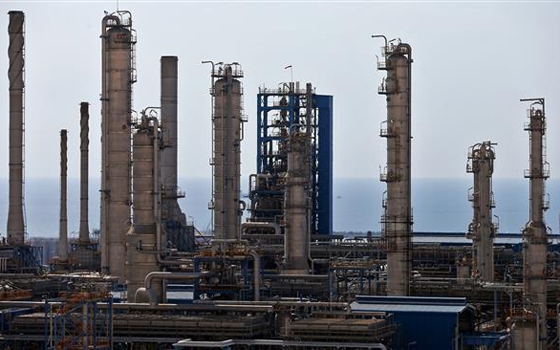A new report released by a global research and consultancy group revealed that Iran is capable of attracting US$70bn worth of investment in its petrochemical projects.
According to Wood Mackenzie, the country is bent on further developing its petrochemical plants and in doing so it has major plans to attract foreign direct investment, especially from European investors, to expand its petrochemical sector.
Afsar Hussain, an expert in Wood Mackenzie's EMEARC Refining and Chemicals research team that specializes in olefins and polyolefins, noted that “Iranians have very ambitious plans to expand their petrochemical industry and have a large number of projects in various planning and construction phases.”
The expert noted that European investors, on the other hand, are eyeing Iran, but still act with caution as they await full removal of international sanctions that have been imposed on the country as a result of its peaceful nuclear program.
Iran had clinched an agreement over its nuclear program, known as the Joint Comprehensive Plan of Action (JCPOA), with six world powers in Austrian capital city of Vienna in mid-July, according to which sanctions imposed on Iran’s economic and energy sectors will be lifted in return for certain restrictions on its civilian nuclear program.
Hussain stated that Iran is clearly a viable location in terms of low cost gas-based petrochemical feedstock, because other actors in the Middle East petrochemical sector, with the exception of Qatar, have limited supplies of low-cost ethane available.
“We believe Iran can attract US$70bn worth of investments, but only over a prolonged period that confirms it is an attractive investment opportunity. By comparison, the US shale gas revolution attracted over 200 projects worth over US$130bn within a decade of its emergence,” Hussain added.
Asked about the falling price of petrochemical products in global markets, the Wood Mackenzie expert said, “Petrochemical prices generally fall on lower oil prices, however, we don’t see the sharp falls in petrochemical prices the same way as oil, as demand for petrochemicals has remained strong and supply outages have supported prices.”
According to Wood Mackenzie’s report, Iran exported about US$15bn worth of petrochemicals in 2011, before Western sanctions were imposed on the country, and has been able to revive its petrochemical exports volume since 2014 as a result of the lifting of petrochemical-related sanctions in November 2013.
An Iranian petrochemical industry official has also announced that the country will be hosting an international event on investment in its petrochemical sector in the middle of December.
“The conference will be held to introduce opportunities for investment in Iran’s petrochemical industry and to discuss available grounds for the attraction of foreign direct investment after sanctions imposed on Iran are removed,” Mohammad Hassan Peivandi, deputy managing director of National Petrochemical Company (NPC), said in an interview with IRNA.
According to Peivandi, the conference, scheduled to be held on 13-14 December, will be attended by representatives of 137 creditable international companies.
Iran has already unveiled plans to become the leading producer of petrochemicals in the Middle East by significantly expanding the range and volume of its petrochemical production.
Earlier in April, Ahmad Mahdavi Abhari, secretary of the Association of Petrochemical Industry Corporations, said the country’s petrochemical sector is capable of attracting USD 70 billion in domestic and foreign investment.
He added that the value of half-finished projects in Iran's petrochemical sector amounts to USD 70 billion, proving that the sector has a good potential to attract foreign investment.
Press TV
9 December
























































